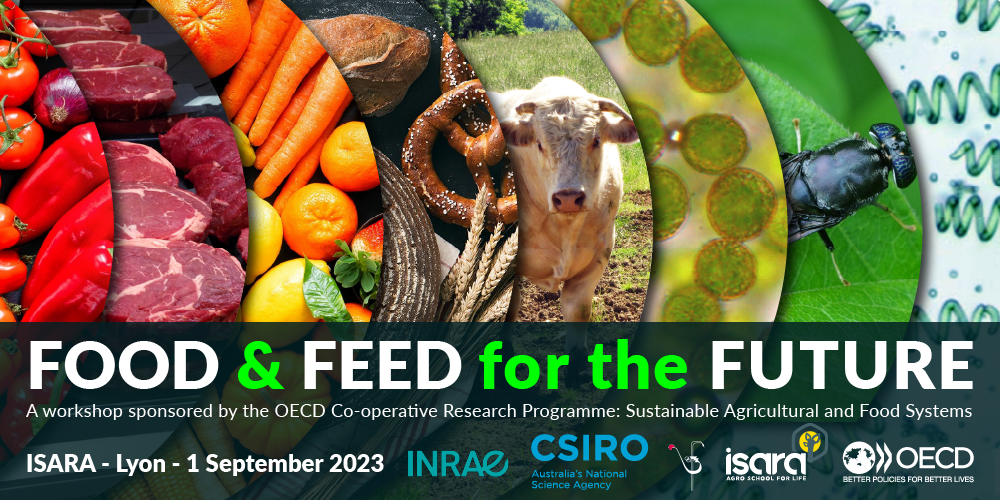
|
|
|
Announcement
NEW: the deadline for early bird rate and abstracts submission is postponed to July 30
Inrae, CSIRO and AFZ (French association for animal production) are delighted to invite you to
Food and Feed for the Future
at ISARA, Lyon (France), 1st of September 2023
A workshop sponsored by the OECD Co-operative Research Programme: Sustainable Agricultural and Food Systems.
CONTEXT
Agri-food systems must evolve towards a pattern of sustainability and resilience to ensure food security and nutrition for all. The status quo is not an option. Major transformations in agricultural systems and natural resource management will be required to ensure a safe and healthy future for all people and the entire planet. The growing protein demand of the growing global population can only be sustainably addressed by diversifying the protein offering. The workshop presents and discusses challenges and opportunities for protein production from animals, plant-based sources, and novel protein sources (insects, yeast, and microalgae) and how they contribute to sustainable food systems. Different options are discussed to address this problem: they can focus on new technologies such as microbial production to produce more food or they can consider more sustainable land-based food systems.
AIMS OF THE WORKSHOP
This workshop will address the following questions:
- How will the global need for protein be met combining ethical and sustainable agriculture with microbial bioproduction?
- Can microbial bioproduction be considered safe, resilient and non-competitive with land farming?
- What are the modern nutritional approaches to healthy production of animal and human diets in a resource-and carbon-constrained world?
- What are the socio-economic issues of future sustainable agricultural systems?
- How to address the ethical/societal acceptation challenge of food and feed microbial/tissue bioproduction?
TARGET AUDIENCE
This workshop targets all stakeholders who aim at understanding and forecasting the future of feed and food whether they are potential actors of change or have to deal with the constraints and opportunities generated by such changes with the responsibility of feeding increasing human populations with lower impact on the resources:
- farmers and farmers organisations (syndicates, cooperatives, associations),
- feed and feed additives manufacturers and retailers and their representants,
- research institutions and programmes at national, transnational, and global levels; academy including students,
- experts, consultants and extension services,
- policy makers, consumers and lobbying bodies involved in the feed or the food sector at national, EU and international levels
PROGRAMME
Morning
Welcome coffee
Opening speeches
Opening address by H.E. the Ambassador of Australia to France, Ms Gillian Bird PSM (Australian Embassy in France)
Presentation of the Co-operative Research Programme of the OECD, Andy Sheppard (OECD, France)
Introduction
-
What is sustainability of food and feed? Anne Mottet (FAO, Italy)
Microbial and tissue production for food and feed applications
- Future proteins (algae, fungi, etc), Aarti Tobin (CSIRO, Australia)
- Microbial biotech for feed and food for the future, Prof. Willy Verstraete (University of Ghent, Belgium)
- Cultured meat production: insights from a tissue engineering perspective, Lieven Thorrez (KU Leuven, Belgium)
- Sustainability of insects for feed and food, Thomas Lefebvre (Ynsect, France)
- Food safety aspects of cell-based food: global perspectives, Masami Takeuchi (FAO, Japan)
Sustainability of land-based food
-
Applying agroecological principles to animal farming systems fosters transition
towards sustainable food systems, Bertrand Dumont (INRAE, France) - Pathways to climate neutral red meat production, Dr Brad Ridoutt (CSIRO, Australia)
Lunch and poster session
Afternoon
Is there a place for a more diverse protein offering?
- The Dublin DeclarationRoles, services and impacts of livestock, Peer Ederer (GOALSciences, Switzerland)
- Can we do without livestock? Wilhelm Windisch (TÜM, Germany)
- Place of animal products in the human diet, Nicole Darmon (INRAE, France)
- Consumer acceptance of alternative proteins, Marleen Onwezen (WUR, The Netherlands)
Conclusion
- Irène Tolleret (European Parliament, France)
- Jean-Baptiste Moreau (Former French deputy, France)
Poster session
Board of speakers
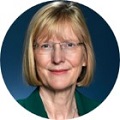 |
Ms Gillian Bird PSM is Australia’s Ambassador to France and non-resident Ambassador to Algeria, Mauritania and Monaco. A senior career official with the Department of Foreign Affairs and Trade, she was most recently Ambassador and Permanent Representative to the United Nations in New York. Ms. Bird holds a Bachelor of Arts (Honours) from the University of Sydney and is a graduate of the École Nationale d'Administration, France. |
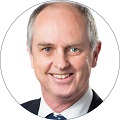 |
Dr. Andy SHEPPARD is a Chief Research Scientist at CSIRO. He has been working on biosecurity and invasive species management since 1991. His current primary role is a secondment into the Commonwealth Department Agriculture Fisheries and Forestry as Co-Executive Director of DAFF-CSIRO Catalysing Australia’s Biosecurity Initiative after instigating this partnership across both agencies. He has over 30 years of active international research in weed and pest management having led collaborative research projects with France, United States, South Africa. He was elected to the Australian Academy of Technology & Engineering in 2019 and International Fellow of the Académie d’Agriculture de France in 2020 and awarded the Ordre du Merit Agricole by France in 2023 for services to agricultural sciences. |
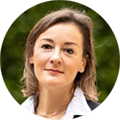 |
Anne MOTTET is Lead Technical Specialist on livestock for IFAD, the UN International Fund for Agricultural Development. She holds a PhD in Agro-ecosystems and has nearly 20 years of experience in policy and technical support for transition to sustainable food systems. Anne has developed tools and carried out analysis and global assessments on topics related to livestock and animal products, natural resources, climate change and agroecology. |
 |
Dr. Aarti TOBIN is the Animal Protein lead in CSIRO’s Future Protein Mission, and she is the Focus Area Leader for Consumer Segments within the Food Program. She has over 30 years’ experience in developing commercially successful value-added meat products for local and export markets. Her research focus and expertise are on how muscle structure and function are affected by processing interventions, and how these impact on meat quality attributes such as meat colour, texture, sensory, oral breakdown and digestion, of whole muscle and processed meats. Since completing her PhD in 2014, Aarti has pursued her research on food for the elderly. More recently Aarti has developed plant-based meat products, and plant-meat hybrid products for the flexitarian consumers. |
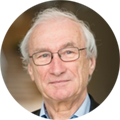 |
Prof. em. Willy VERSTRAETE, Ghent University (BELGIUM) Centre of Microbial Ecology and Technology (CMET). His R&D focuses on Microbial Resource Management and specifically microbiomes to upgrade secondary resources. He will talk about the importance of natural fermentations and their underlying principles in the context of the Sustainable Development Goals |
 |
Lieven THORREZ is professor at the faculty of medicine, department of development and regeneration, at KU Leuven, Belgium. As a multidisciplinary biomedical engineer by training, he focuses on skeletal muscle tissue engineering. His research involves cell isolation, expansion and characterization, engineering a blood vessel network in muscle, development of methods for muscle stimulation and de- and recellularization methods towards applications including drug testing, regenerative medicine and cultured meat production. |
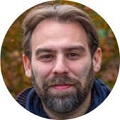 |
Dr. Thomas LEFEBVRE is VP and R&D Director at Ÿnsect, world leader in the insect industry. He joined the company in 2014 and has contributed to the rapid growth of the sector from its beginnings. With 20 years expertise in entomology, he is conducting pioneer research projects in insect nutrition, health and genetics. He represents the insect industry in the European Association of Animal Producers. |
 |
Masami TAKEUCHI is Food Safety Officer at the UN organisation FAO. She holds a PhD in Food Science and Human Nutrition, and has more than 25 years of experience in the area of food safety. At FAO, her main responsibility is to provide scientific advice to the Members, and in particular, risk assessment of food derived from various emerging technologies is the core interest of hers. Recently Masami has developed a milestone publication together with the World Health Organization on the topic of food safety aspects of cell-based food and it includes the key results of the global expert consultation that conducted food safety hazard identification of cell-based food. She will discuss the results as well as expert’s perspectives on relevant food safety issues. |
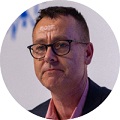 |
Dr Brad RIDOUTT is a Principal Research Scientist with Australia’s national science agency – The CSIRO. His expertise is in life cycle sustainability assessment in the agriculture and food sectors which is used to address strategic challenges in relation to climate change, water scarcity, sustainable food systems, and sustainable diets.Dr Ridoutt is engaged in a range of international processes relating to the standardization ofsustainability assessment and environmental labeling. His research is creating the main evidence baseconcerning the environmental impacts of dietary habits in Australia. |
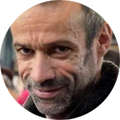 |
Bertrand DUMONT is a scientist working at INRAE. He has a 25-year experience on how to limit the environmental footprint of herbivore farming systems. He has led a think-tank, in which were explored potential routes for the development of ecology-based alternatives for livestock production. He is currently coordinating the Horizon EU project Agroecology-TRANSECT on transition to agroecology, through co-innovation dynamics between researchers and farmers. |
 |
Peer EDERER is founder and director of GOALSciences, the Global Observatory of Accurate Livestock Sciences, that aims at researching and communicating scientific evidence about the role of animals in the global food system. He has an MBA degree from Harvard University, a PhD in financial economics and holds an adjunct professorship for innovation studies. He has extensive experience in strategy advisory to private companies and public bodies in the global food system and is a frequent presenter on related topics. He has cooperated with globally leading universities and is a member of the Scientific Council of the World Farmers Organisation. |
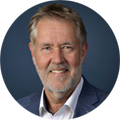 |
Prof. Dr. habil. Wilhelm WINDISCH is Professor for Animal Nutrition at Technical University Munich (TUM), Germany. Wilhelm Windisch studied Agricultural Sciences at TUM and did his doctorate in 1988. From 2002 to 2010 he was full professor of Animal Nutrition at the University of Natural Resources and Life Sciences Vienna (BOKU), Austria. Since 2010 he is full professor of Animal Nutrition at TUM. His research focusses on properties of feeds (mainly minerals, functional or antinutritive compounds) and nutrient transformation including emissions in livestock. |
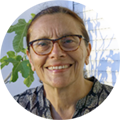 |
Nicole DARMON is senior researcher in nutrition and public health at the French National Research Institute for Agriculture Food and the Environment, in Montpellier, south of France. Expert in social inequalities in nutrition, she conducts researches based on observations, interventions and modeling to help improve the physical and economic access to healthy and sustainable diets. is |
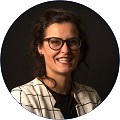 |
Marleen ONWEZEN is expertise leader consumer science at Wageningen University and Research in the Netherlands. She has a Phd in emotions and sustainable consumer choices, and is an expert in consumer science and behavioural economics, always focussing on consumer behaviour for sustainable and healthy food. She sets the research agenda for consumer science, is leading many large scale projects, and is a frequent presenter and a strategic advisor on sustainable consumer choices for private and public bodies to translate science to society. |
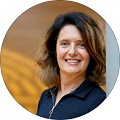 |
Irène TOLLERET is a French politician who was elected mayor of Fontanès (Hérault, France) in 2014. She is a member of the Hérault departemental council and of the European Parliament where she is a member of the Committee on Women’s Rights and Gender Equality, the Committee on Regional Development and the Committee on Agriculture. She is also co-chair of the EP’s Intergroup on Wine, Spirits and Quality Foodstuffs and chair of the European Food Forum. She is a winegrower by profession and has fought for the extension of the geographical area of Pic Saint-Loup. |
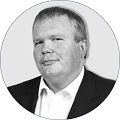 |
Jean-Baptiste MOREAU is a public affairs consultant within the RPP group, previously deputy for the presidential majority and spokesperson for Emmanuel Macron's LREM party for 5 years. He trained as an agricultural engineer and took over the family farm in 2006. He was president of a cattle and sheep breeders' cooperative and president of a slaughterhouse from 2012 to 2017. |
| Online user: 2 | Privacy |

|
